Performance Equipment Mills with Diamond Teeth
BY Tom Kuennen
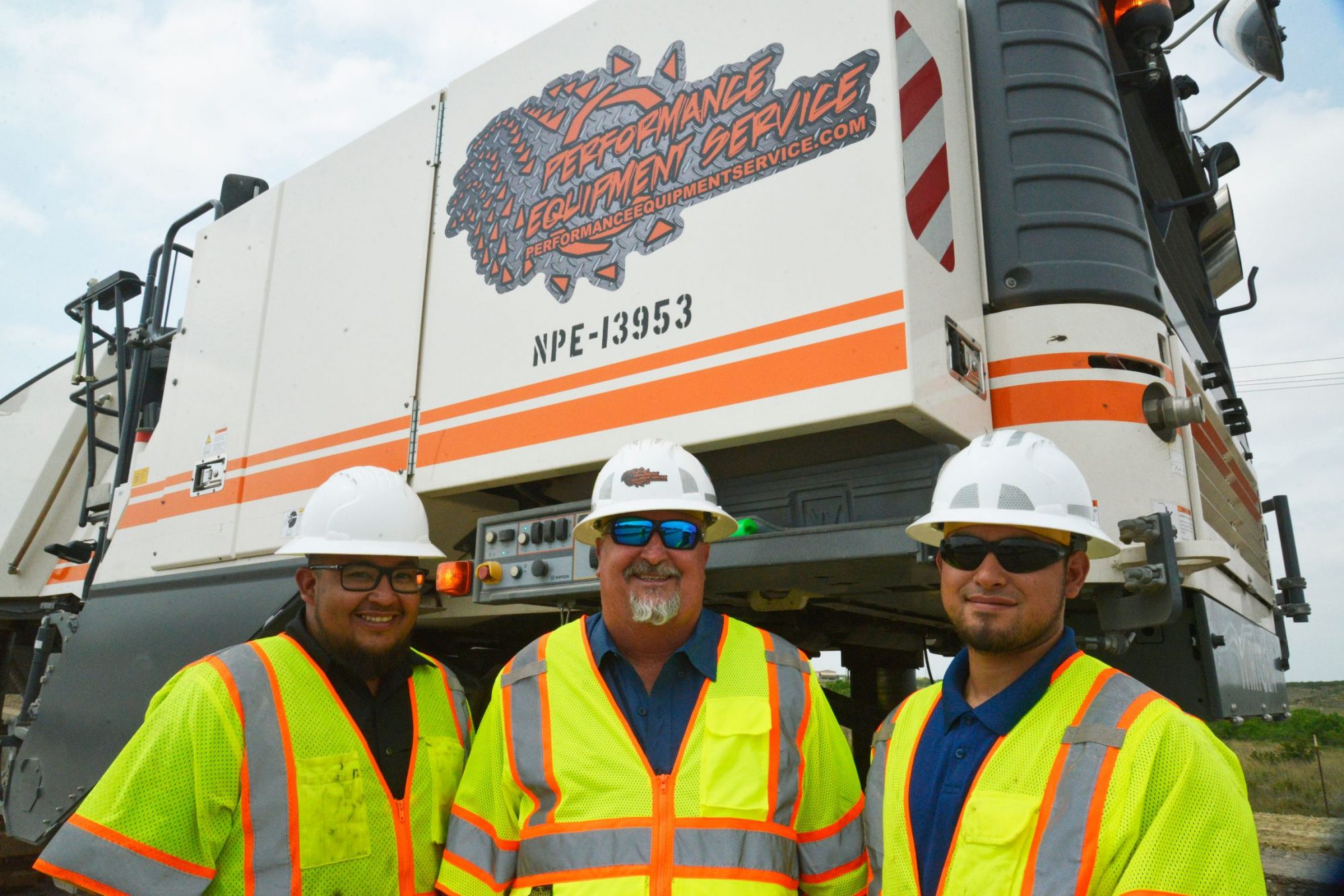
Performance Equipment Service, San Antonio, performs only asphalt milling and soil stabilization, and its motto of No Ugly Milling is fulfilled by its dedication to performance.
“Our newer fleet of equipment allows for high production with fewer breakdowns,” President Kelly L. Durham said. “We provide high production profile milling with diamond teeth. We are still a soil stabilization and milling contractor, with ten cold mills and four recycler/reclaimers. We work all over Texas in support of any of the large contractors in the state of Texas who need milling and reclaiming services.”
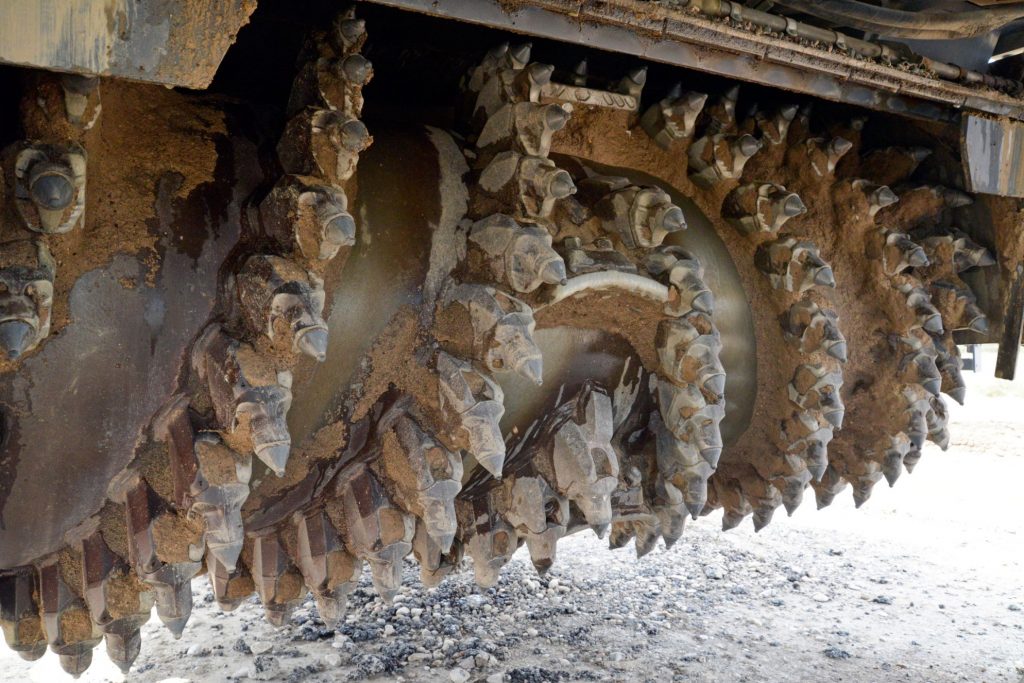
Polycrystalline diamond (PCD) teeth are mounted on conventional W 220i drum of Performance Equipment
“Our corporate campaign is ‘No Ugly Milling,’” Operations Manager Lauren Durham said. “It’s what we live by. We won’t go out there and perform just any job or any quality of work. That would be less than perfect. It’s our standard and we support it in meetings, with bumper stickers, and our social media.”
While most of its work is in south Texas, in fact Performance Equipment mills and stabilizes all over the Lone Star State. While Polycrystalline diamond (PCD) teeth are more expensive than conventional carbide-tip teeth, Performance Equipment uses the PCD cutting tools to enhance milling across the state.
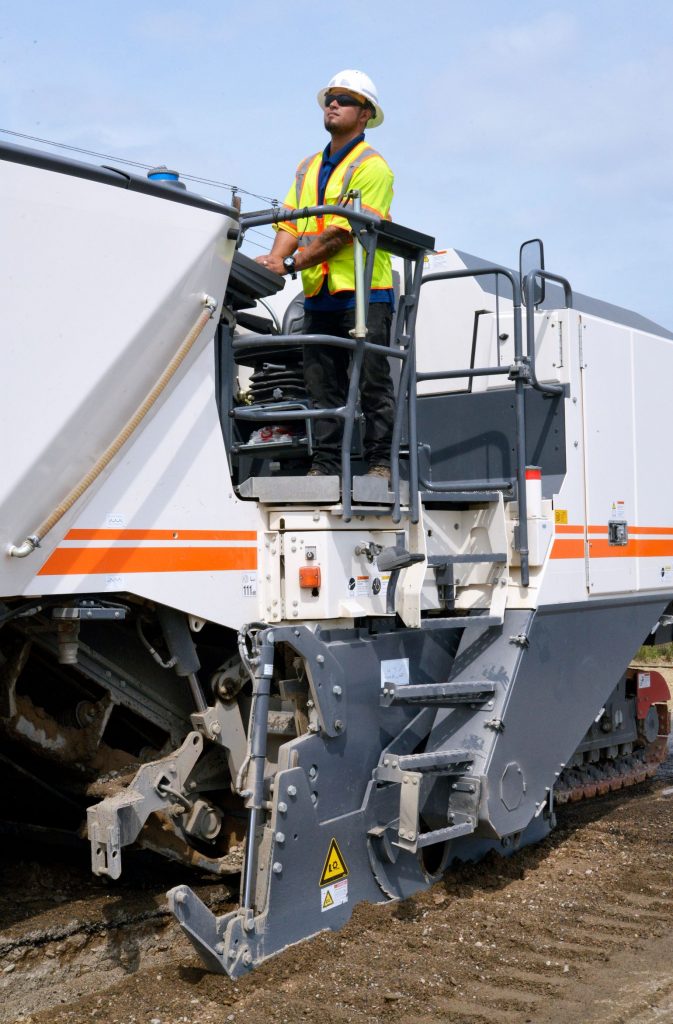
Foreman Juan Cortez at helm of Performance Equipment Service’s W 220i in Eagle Pass, Texas, in support of Reece Albert Construction
“Getting teeth that will keep performing is problematic, especially in Texas,” Kelly Durham said. “We have good roads in Texas, but materials are different from one end of the state to the other. We found out milling down in south Texas that the roads have a lot of river rock in them. It’s a very hard, very abrasive material that would wear the carbide teeth out sometimes in as little as 50 feet. We had to do something, which is why we went to the PCD teeth.”
When visiting Performance Equipment Service, three of their large mills were using PCD teeth, while the remainder of their fleet had carbide teeth mounted. “We are able to pick and choose where we send those diamond teeth,” Lauren Durham said.
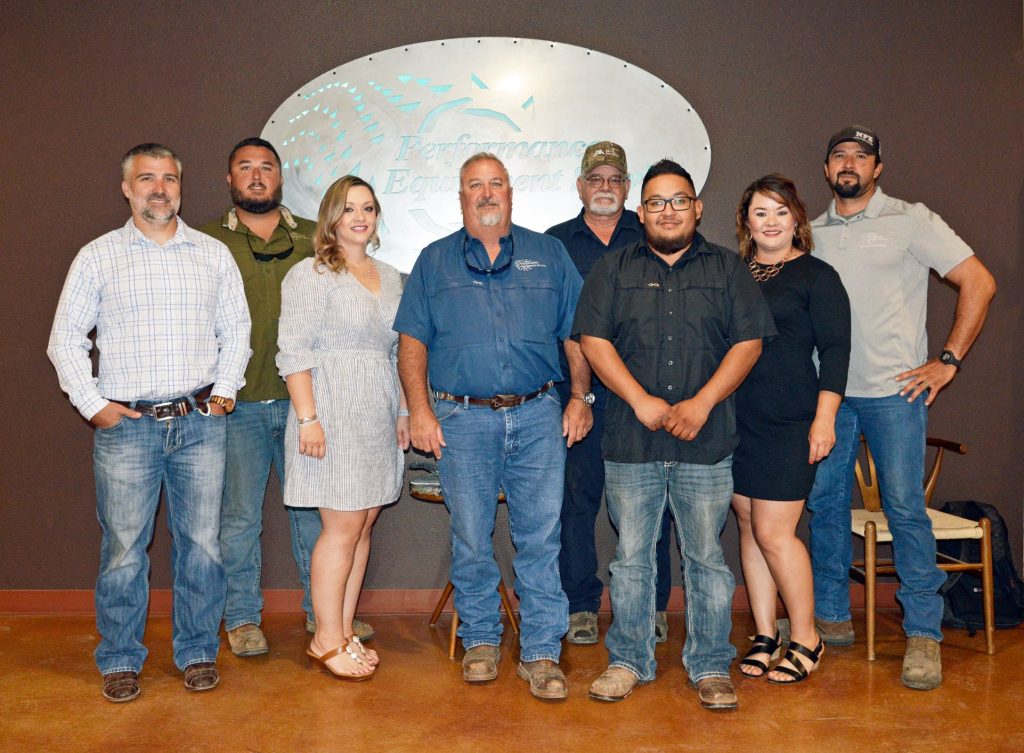
At Performance Equipment headquarters outside San Antonio are C.J. Carroll, CFO; Dustin Durham, chief estimator; Kendall Durham-Kersh, human resources manager; Kelly L. Durham, president; James Butcher, service manager; Eric Apolinar, IT manager; Lauren Durham, operations manager; and Justin Garcia, safety manager.
“The PCD teeth have really saved us a lot of wear and tear, especially down in areas such as Corpus Christi,” Kelly Durham said. “The roads are very hard down there, but on our first set of PCDs we ended up getting 273,000 tons. That’s a huge deal, especially when we were only getting 50 feet out of conventional teeth that first year.
“Then you have the time spent changing all those teeth…That down time is a big deal, so the diamond teeth have really helped us in that aspect. They are expensive, we understand that. We know the expense, but the savings off the backside are tremendous.”
“PCDs are not appropriate for cutting on concrete, nor for urban applications like San Antonio, with buried streetcar tracks and manhole covers,” Service Manager James Butcher said. “We also have slowed down the speed at which the operators lower the drum into the cut,” he said.
“Basically, we ease the drum and teeth into the cut. We understand that they have a place, we understand that downtown San Antonio where railroad tracks and cobblestones are, they can break,” Butcher added. “They won’t work everywhere. But we also know that in the right environment, they save us money, save us time, and make a huge difference to what we do on a day-to-day basis.”
Having options for teeth is one way Performance Equipment distinguishes itself from the competition.
“One thing that sets us apart is that we know PCD teeth won’t work in city streets, and places that we know there’s concrete,” Lauren Durham said. “Yet we are able to work on places like the tire test tracks, where few milling contractors in the area have the ability to be as specialized as us.”
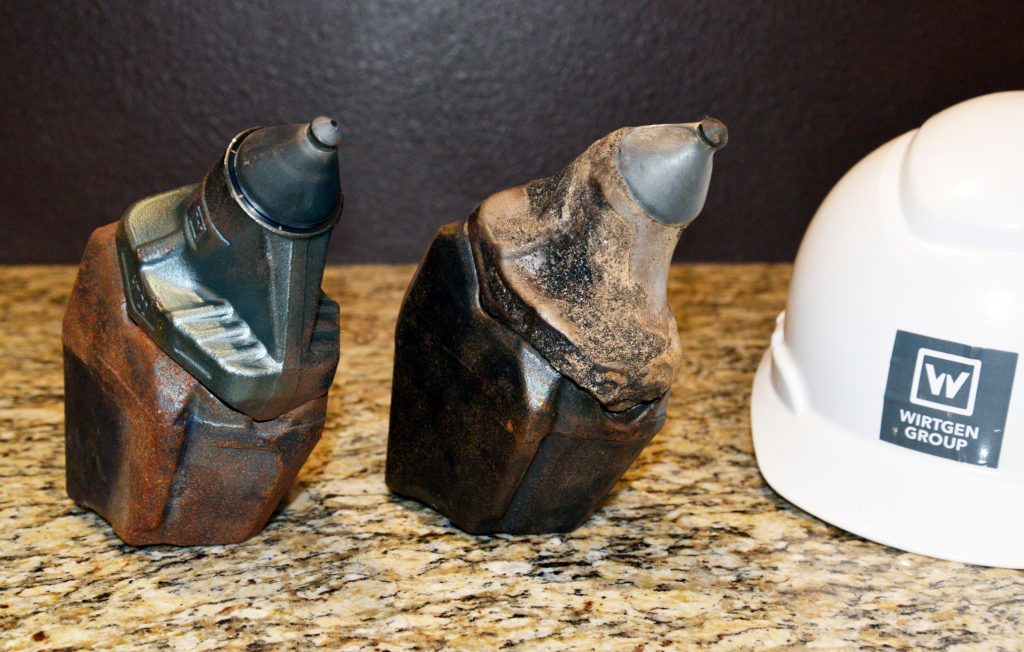
Here is a new PCD tooth (left), compared to same with 150,000 tons behind it. Polycrystalline diamond (PCD) cutting tools are a synthetically manufactured strong mass of carbon and carbide. A PCD tip is a crystalline diamond-coated carbide tip. This tip consists of differing layers: A concentrate of diamond particles in the upper layer; a series of interlayers; and a tungsten carbide substrate. Interlayers in the PCD bit dampen the impact stresses between the tungsten carbide substrate and the highly wear-resistant PCD contact surface. The interlayers subsequently enhance the durability and reliability of the PCD contact surface.
The numerous tire test tracks in Texas typically require specialized milling. “PCDs give us a perfect pattern every time,” Kelly Durham said. “And that’s an important deal for us. They’re going to have very critical milling specs, and fine milling or profile milling to cut to grade in which they can be confident they are placing 2 inches of asphalt down and they’re at grade.”
The firm expects to get 250,000 tons out of a set of teeth. “There are things in the roadway that won’t allow us to get that all the time,” Kelly Durham said. “It can be a new operator or haul truck driver setting the drum down on a metal trailer that breaks the teeth.
“The good news is when you put a set of diamonds in, they wear evenly,” he added. “The biggest wear we see is in the body wash on the sides of the teeth. They hold the same pattern throughout the life of the teeth, so it doesn’t kill us if we have to spot one or two teeth in then as we go through the life of the PCDs.
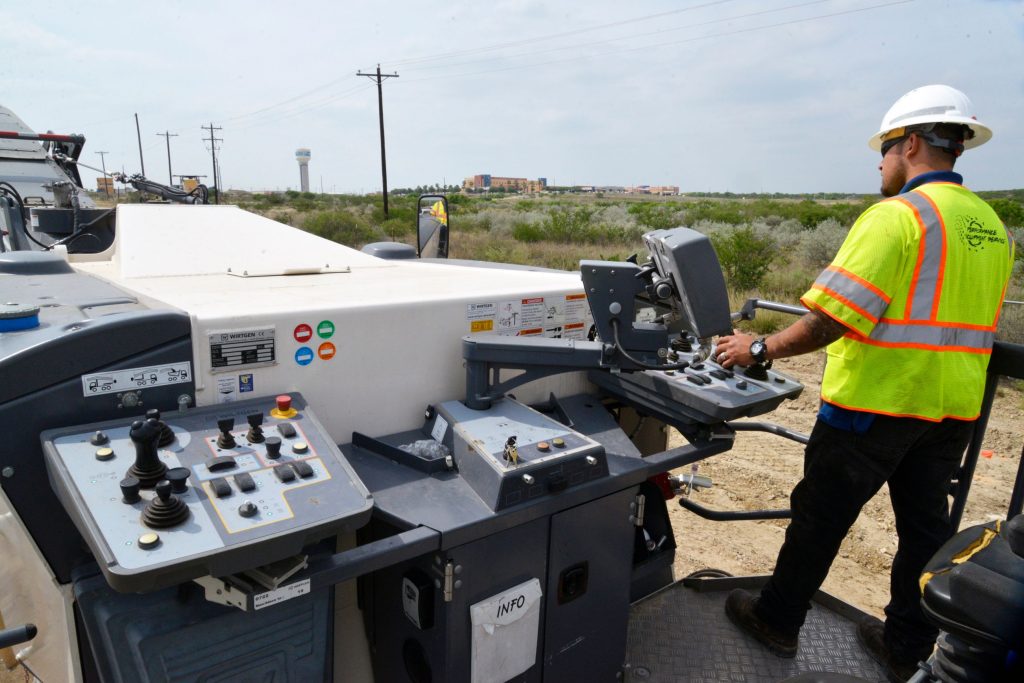
Foreman Juan Cortez at helm of Performance Equipment Service’s W 220i in Eagle Pass, Texas, in support of Reece Albert Construction
“The payback is substantial,” he added. “Long-term, we see a lot more tonnage come through the machine than we would if we were using regular carbide teeth, especially in the south Texas area,” Kelly Durham said. “It equates to cost savings in time, materials and labor hammering teeth. It also provides better results for happy customers, like the test tracks, who now call us all the time. They want us there because of the time, the teeth, the pattern, and the technically advanced operator skills that we bring to the table.”
For more information, contact Matt Graves at matt.graves@wirtgen-group.com or visit www.wirtgen-group.com/america.
